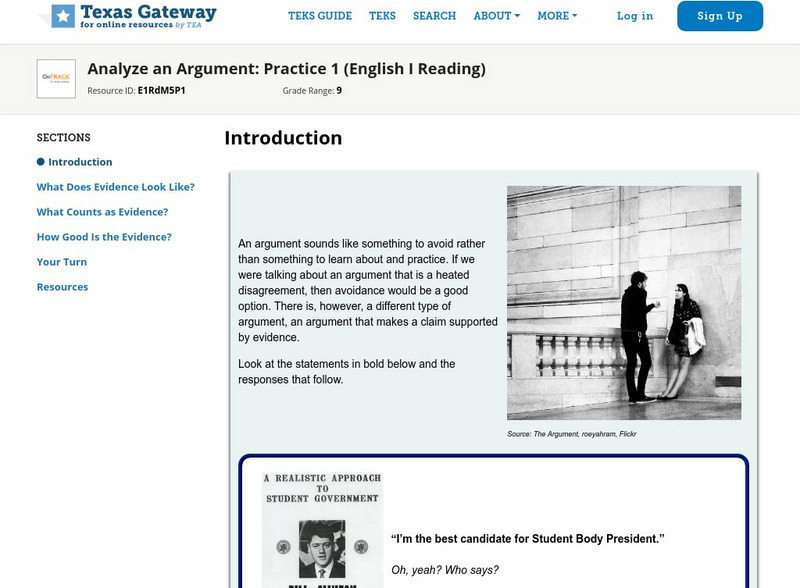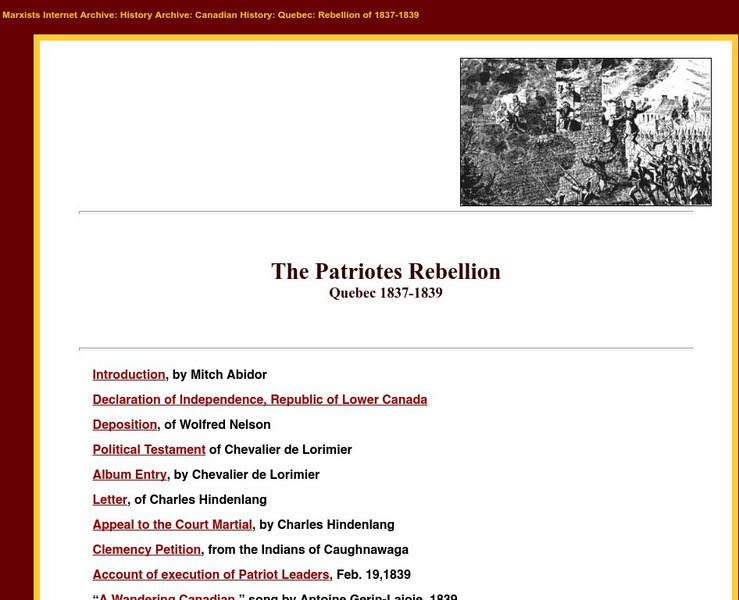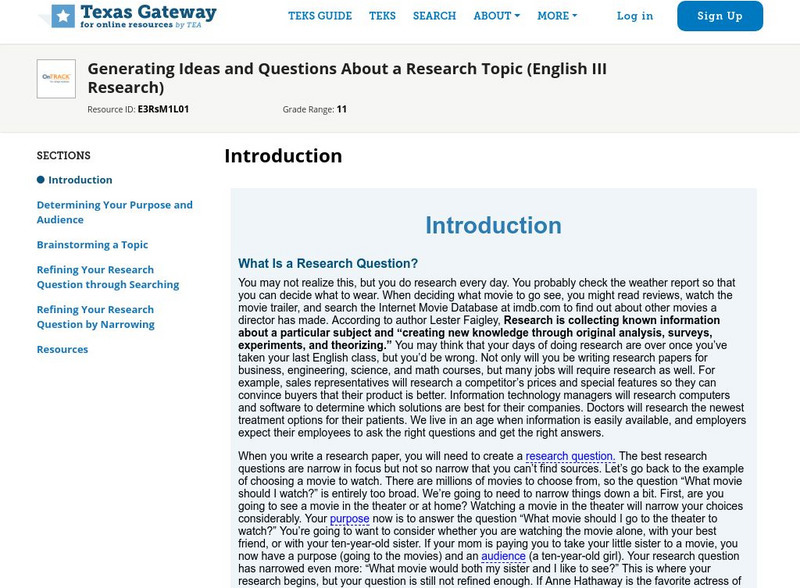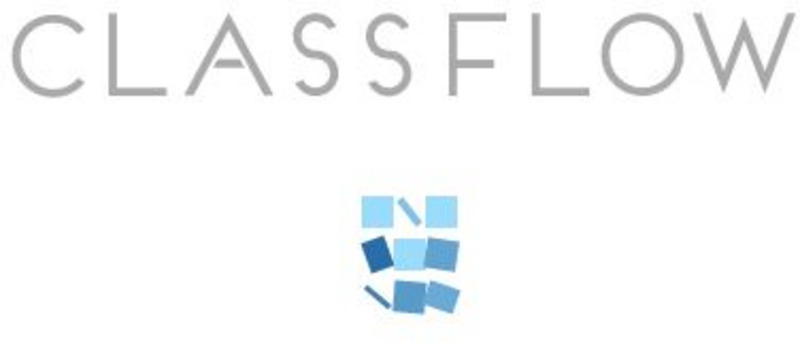Stanford University
Sheg: Document Based History: Reading Like a Historian: Evaluating Sources
[Free Registration/Login Required] Are all historical sources equally trustworthy? How might the reliability of a historical document be affected by the circumstances under which it was created? In this activity, students sharpen their...
Stanford University
Sheg: Document Based History: Reading Like a Historian:sourcing Classroom Poster
[Free Registration/Login Required] Sourcing asks students to consider who wrote a document as well as the circumstances of its creation. Who authored a given document? When? For what purpose? This poster reminds students before reading a...
Texas Education Agency
Texas Gateway: Analyze the Relevance, Quality, and Credibility of Evidence
[Accessible by TX Educators. Free Registration/Login Required] In this lesson, students will learn to analyze the quality, relevance, and credibility of evidence used to support an argument.
Other
Classroom Tech: Evaluating Web Credibility
There is a vast amount of information on the internet, but how much of it is credible? This site presents tips on how to verify the information on a website and not be fooled by web "spoofs". Refer to the checklist for evaluating sources.
The Write Place
Literacy Education Online: Assessing the Credibility of Online Sources
This site from the St. Cloud State University provides information on online sources. This article explains how to assess the value of online sources based on authorship, publisher, date of publication, depth of material, and...
CNN
Cnn: Newspaper Won't Identify Sources in Bombing
Remember Richard Jewell? He was the man accused of being the Olympic bomber by anonymous sources. Jewell was cleared and sued the paper for libel. Links to related stories allows viewers to follow Jewell's story.
Texas Education Agency
Texas Gateway: Analyze an Argument: Practice 1 (English I Reading)
In this lesson, students practice analyzing the evidence that supports or opposes an argument. They are also going to learn to analyze the quality, relevance, and credibility of the evidence so you can decide whether to accept the...
PBS
Pbs Learning Media: News and Media Literacy
This collection, which includes videos, blog articles, student handouts, lesson plans, and tip sheets for families, helps students identify, analyze, and investigate the news and information they get from online sources. Media literacy...
Other
Who Is Hosting This: How to Evaluate Web Resources
This is an excellent, compact guide to evaluating resources on the Internet. It breaks everything down into easy steps and tells you how to do each. Included is an infographic called 'Evaluating Web Resources: A 60 Second Guide.' It also...
Sophia Learning
Sophia: Evaluating Digital Information: Tutorial
In this slideshow tutorial, students will review how to evaluate digital sources. During the digital evaluation process, students are directed to analyze the following: authority, accuracy, objectivity, and currency. After the tutorial,...
PBS
Pbs Learning Media: Virtual Professional Learning Series
Our Virtual Professional Learning Series is created for teachers-by teachers-to bring together content experts and educators from all backgrounds. With an emphasis on fun, engaging, accessible, and free tools for classrooms, these...
ReadWriteThink
Read Write Think: Hoax/no Hoax? Online Comprehension and Evaluation Strategies
Students use research-based comprehension strategies to read and evaluate websites, and practice analysis by comparing hoax and real websites and by identifying false or misleading information. SL.11-12.2 Eval&Integrate sources
Other
Scholarly Resources: What's the Difference?
This succinct explanation shows you what the difference is between a scholarly and a popular periodical or other resource.
Other
Information Literacy Activities
These worksheets cover many aspects of the research process, as well as censorship, web page evaluation and boolean operators.
Marxists Internet Archive
The Patriotes Rebellion Quebec 1837 1839
This addresses class conflicts in Lower Canada by understanding the The Patriotes Rebellion in terms of frustrations with the British Government and their slow response to the 92 Resolutions. It is an interesting read, with related pages...
Louisiana Department of Education
Louisiana Doe: Louisiana Believes: English Language Arts: Grade 8: Sugar
Eighth graders will explore the impact that sugar production and trade had on the economic and social course of world history, including in Louisiana.
Texas Education Agency
Texas Gateway: Generating Ideas and Questions About a Research Topic
This lesson focuses on creating a research question including determining the purpose and audience, brainstorming a topic, researching the question for information, and refining and narrowing the question. W.9-10.7 Research....
Other
Media Education Lab: My Pop Studio
[Free Registration/Login Required] Get ready to go behind-the-scenes of the television you watch, magazines you read, music you listen to, and websites you visit! The 'studios' let you.. Create, Comment, Control. Targeted at girls, the...
Sophia Learning
Sophia: Research Questions: A Focus for Planning, Researching, and Writing
This Sophia video lesson introduces how to develop good questions for a research paper. CCSS.ELA-Literacy.CCRA.W.8; CCSS.ELA-Literacy.WHST.6-8.7 Conduct short research projects. CCSS.ELA-Literacy.WHST.6-8.7 standards are addressed in...
University of Hawai'i
University of Hawaii: Business Editors Ethics Code
The official ethics code of The Society of American Business Editors and Writers provided for by the University of Hawaii.
Thinkport Education
Thinkport: Assessing an Author's Claims
Learn how to evaluate resoruces and author's claims.
ClassFlow
Class Flow: Research Questions
[Free Registration/Login Required] This lesson explores the steps of the research process - selecting an appropriate research topic, and delving more into the topic.CCSS.ELA-Literacy.CCRA.W.8
Other popular searches
- Source Credibility
- Internet Source Credibility
- Article Source Credibility
- Evaluating Source Credibility
















